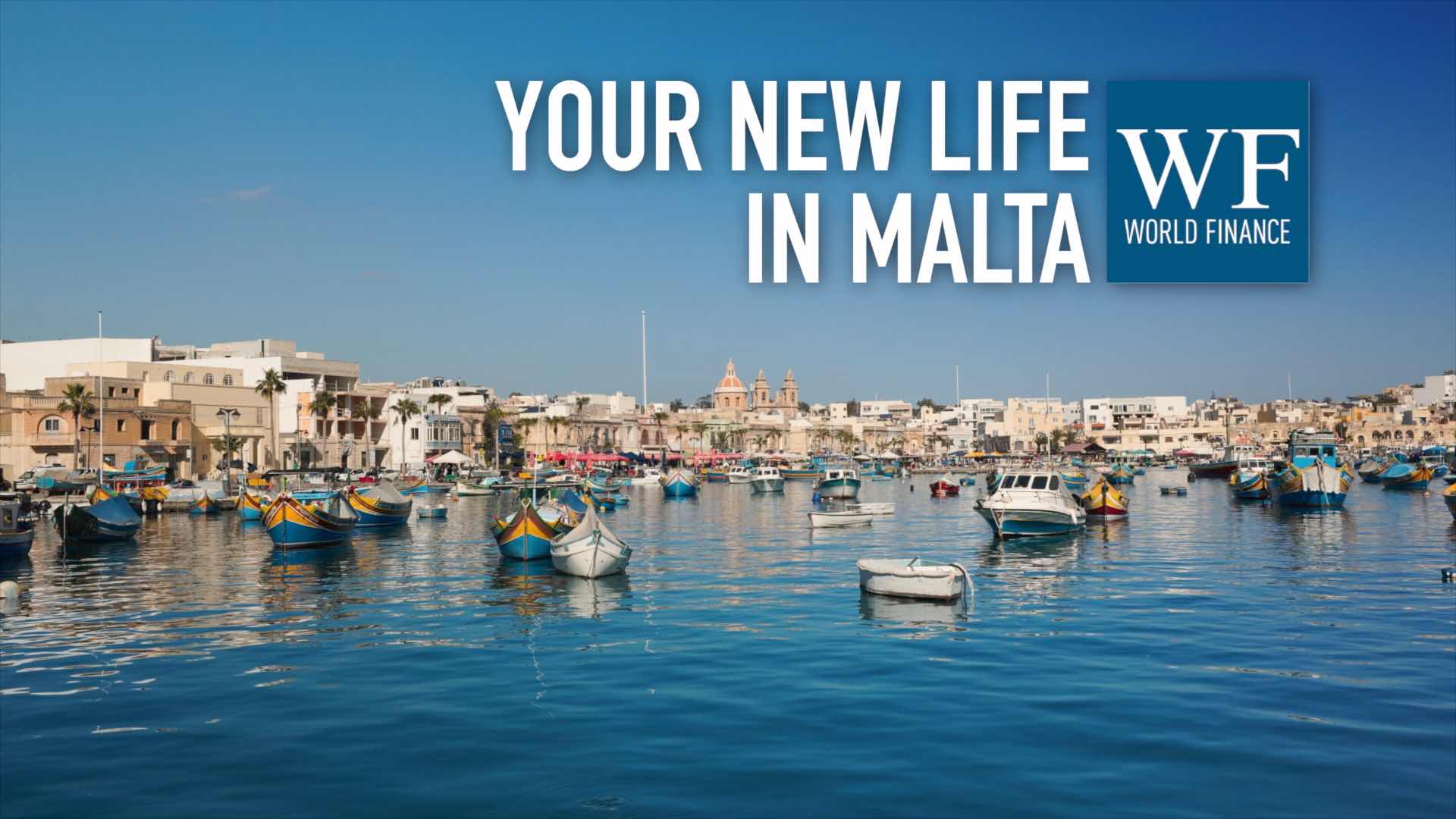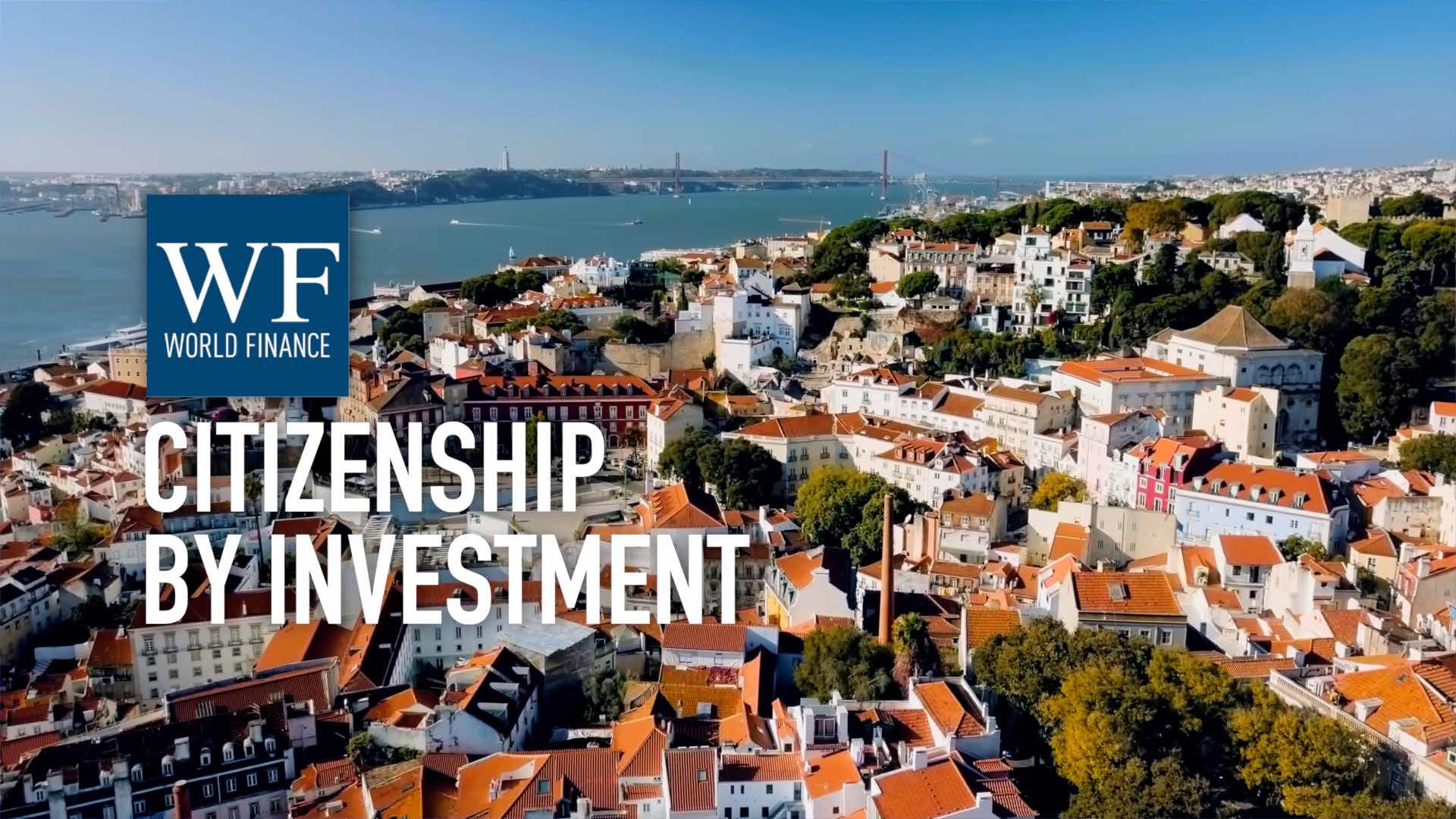Start In Malta: New residency option offers support and funding to non-EU innovators
The English-speaking island nation is a unique gateway to Europe, Africa and the Middle East
Related:
Transcript
World Finance speaks to Malta Enterprise and Residency Malta, the government agencies behind Malta’s new residency by investment programme for start-ups; as well as Malta Tourism Authority and the CEO of Trust Stamp, to understand what makes Malta such an attractive destination to live, work, and grow a new and innovative business.
World Finance: Freedom of movement and the ability to explore the world have long been recognised as vital to human and economic development. But more than ever before there is a high demand for politically and economically stable jurisdictions to welcome migrants to settle, work, and establish businesses.
Malta is one such jurisdiction. Small but agile, the Mediterranean island state recently created a residence permit for digital nomads; and has now launched programme for non-EU entrepreneurs who would like to use Malta as a launch pad for their ventures.
Economic development authority Malta Enterprise has been working to make it as simple as possible for new businesses to succeed on the island.
Kurt Farrugia, Malta Enterprise: We’ve been working together with our start-ups for the past few years, and we’ve been developing schemes in the form of grants or a payment advance, as well as ensuring that it’s a lot easier to setup a company to start up in Malta.
We try to facilitate as much as possible the business journey of a company. We step in to make synergies with our universities, with the technical institute, and also to attract companies and small start-ups with the highly innovative products and services to relocate and set up in Malta. And that is exactly what the programme aims to do.
We are looking at entrepreneurs outside of the European Union which are the game changers in various industries. Eligible activities that fall under the residence programme would be in manufacturing, software development, industrial services, health, biotechnology, and blue and green economy; as well as other activities that would provide solutions to any of these sectors. So we’re looking at the highly innovative start-ups that come up with great solutions.
World Finance: The programme is a collaboration between Malta Enterprise and Residency Malta Agency, the government body that manages Malta’s residency by investment programmes.
Charles Mizzi, Residency Malta: Residency Malta comes in to facilitate the relocation of these talented individuals to Malta. We will provide residence permits to the founders and co-founders, together with core employees who will be crucial in setting up and operating this business.
But we won’t stop there. We will also be providing residence permits to family members who will be relocating to Malta.
At first we will give a three year residence permit. If the business is doing well, we can renew for a further five years for the founders and co-founders. Core employees have their permit renewed for another three years.
The programme has been designed to provide flexibility and peace of mind to these individuals. We know this is a big decision for them, so we want to make this as smooth as possible.
We welcome people from all walks of life, and we hope to attract more and more people to come and live on our island and enjoy all the benefits that our country has to offer.
And it does have a lot to offer. Last year 2.3 million people visited Malta – and 20 percent of the population are ex-pats who found that the islands’ lifestyle, hospitality and infrastructure made it the perfect home.
Francesca Vincenti, Malta Tourism Authority: Well the island of Malta is in the centre of the Mediterranean sea; it is Europe’s smallest member state, both in terms of land mass and its population size. We’re very well connected to airports in Europe, Turkey, Israel, North Africa and with the Emirates as well.
It’s a very safe place to live, and it’s one of the most affordable countries to reside in compared to other European nations. Malta is extremely welcoming to newcomers, and we have two official languages: Maltese and English.
Due to the fact that the islands are small in size with short distances between one spot and another, combined with the great weather – 3,000 hours of sunshine per year – the excellent education system, reliable healthcare system and transport, and of course the multilingual population; this creates the perfect hub for anyone looking for a happy and social work-life balance.
Now whether you’re into history, fine dining, diving, wine tasting, going to the theatre, to concerts, participating in sport competitions; you’ll never run out of things to do, and you’ll encounter people here that may just become friends for life.
World Finance: Trust Stamp is an identity technology company that made Malta its European headquarters in 2020. Its CEO, CFO and CTO moved to the islands just to help the operation get started – until they and their families fell in love with the country. Now they are all permanent or temporary residents through one of Malta’s residency schemes – and the business is thriving.
Gareth Genner, Trust Stamp: The single biggest benefit of being in Malta for Trust Stamp has been our ability to grow at a faster rate than we would anywhere else. And that’s both because of the funding that the government gave us to support that growth, but also because costs in Malta are much lower than virtually every country that we operate in, and because there are talented personnel here.
Malta has the unique distinction of being both a member of the European Union, and a member of the Commonwealth. Therefore it was a very logical leaping off place for us to go into those two networks of countries. And for us, a country where we could do business and deal with government in English was an obvious attraction.
Malta Enterprise worked with us, both advising us on all of the aspects of law and regulation we needed to deal with, together with the things that we would find that are different in the Malta market.
But once we had moved here, they remained committed. We’re in year three of being in Malta, but Malta Enterprise remains as supportive for us as it ever has been. And the range of opportunities that they seek to put before us keeps growing.
We found that being completely open and flexible in communicating with them meant that they joined in the process and became a creative partner in helping us work out how best to make that move a success.
We have found working with Residency Malta to be very straightforward and collegial. Now the new residency initiatives that Malta is establishing will broaden the range of individuals who are able to come to Malta. These programmes have clearly been designed very pragmatically to say, ‘If you are going to bring your talent to Malta, and your energy to Malta, then we want to have you here.’ And again, that’s a very proactive and positive approach, as opposed to the gatekeeper approach which you’ll find in many countries.
World Finance: The programme does seem to have accessibility at its core. Each application costs just €750, plus a small charge to cover the cost of the residence card. All the information about the scheme, and the financial and advisory support available, can be found at startinmalta.com
Charles Mizzi, Residency Malta: Although there are two agencies behind this project, prospective applicants will be assigned one point of contact who will help them throughout the whole process: from application stage to their relocation.
The process is quite simple. The first thing is to set up a meeting with our team, so that we can discuss their plans and their ideas. Obviously Malta Enterprise will be looking at the business proposal to make sure it’s viable. From our side we will look at the residency, we will do a due diligence on each individual included in the application.
Then we will start a personal relationship with the applicant. We will have discussions online and possibly even invite them to come over to Malta so that they can see first-hand what’s available for them.
Normally timeframes will take around 4-6 months in order to conduct full due diligence and evaluation of the business proposal, and then hopefully we will be welcoming a lot of innovative start-ups to Malta.
Kurt Farrugia, Malta Enterprise: Added to that of course we can assist with the implementation of a project. We’re not only assisting by granting a residence programme but also we can offer our support packages, helping you throughout the whole business journey. We’re looking at the business model and if it is a good match for the island and for the start-up itself.
Our geo-strategic location is excellent. It’s easy to do business here, and this is a really good island to live or to raise your kids or to have fantastic healthcare or a good education. A good quality of life, which is so important in this day and age.

 Your new life in Malta: Permanent residency in just four months
Your new life in Malta: Permanent residency in just four months ‘All of Portugal is booming’: Real estate golden visa draws investors
‘All of Portugal is booming’: Real estate golden visa draws investors
